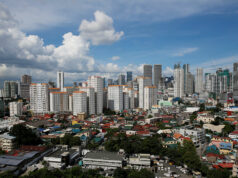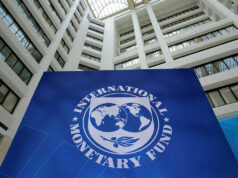NEGOTIATIONS to complete the Regional Comprehensive Economic Partnership (RCEP) trade agreement are expected to take two years, Trade Secretary Ramon M. Lopez said.
Speaking to reporters on the sidelines of an Association of Southeast Asian Nations (ASEAN) trade event on Friday at the Philippine International Convention Center, Mr. Lopez said the timetable incorporates the various approval procedures of each of the countries involved — consisting of the ASEAN members and six others.
“It takes time when it comes to negotiations and we don’t meet every day. (Other countries) also have a process of consultation and it will pass through their own agencies. It’s really going to take time, easily about five years. Right now, we have already reached three years so (the timetable) is about right,” he added.
The RCEP aims to leverage the ASEAN+ free trade agreements with Australia, China, India, Japan, South Korea and New Zealand. RCEP was launched in November 2012 and will be discussed again in the 31st ASEAN Summit in November.
Last month, ASEAN agreed to remove 90% to 92% of tariffs in member-countries’ product lines and decided to recalibrate its objectives to reach an “acceptable landing zone.”
Mr. Lopez said that having the approved guidelines means that there would be little work left to be done, with ASEAN mainly waiting for the acceptance from the six other countries.
President Rodrigo R. Duterte has called for progress towards a “substantial conclusion” in the RCEP talks.
Mr. Lopez said there have been breakthroughs, and sees the possibility of a statement on bringing down non-tariff measures or on trade facilitation next month.
“There are more breakthroughs there [in trade facilitation] in helping the flow of goods and services, the national single window or the ASEAN single window that will help MSMEs (micro, small, and medium enterprises) especially,” he said.
Likewise, Mr. Lopez also said that the country’s agenda for the Asia-Pacific Economic Cooperation (APEC) would be almost similar to RCEP, which will also be discussed next month in Vietnam.
“As per Philippine agenda or interests, [it’s] the mobility of people, the skilled professionals, and skilled workers that can find markets in other countries — in APEC countries. The discussion on MSMEs also and when it comes to inclusive business, that will mean bigger companies in other countries can invite MSME participation as suppliers.” — Anna Gabriela A. Mogato



